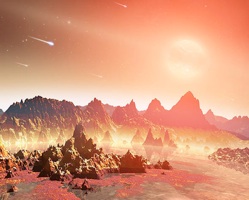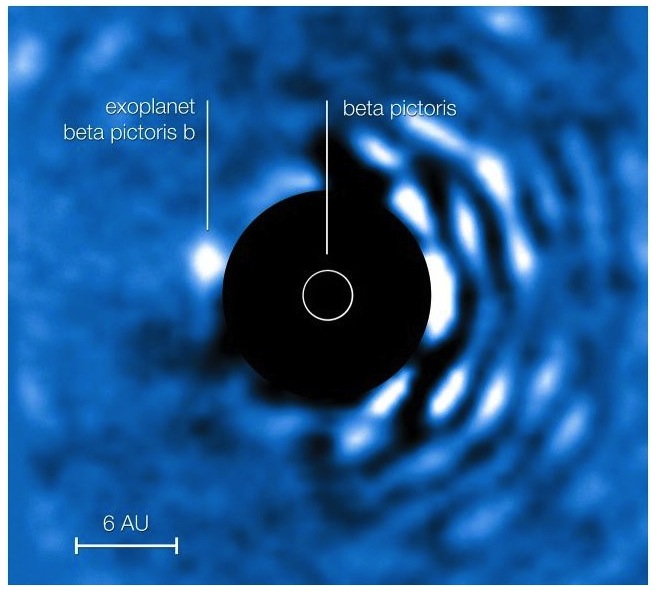Astrobiology

The distribution of biological material in space is crucial to understanding how life originates in the Universe. The discovery of many earth-like planets in other solar systems, along with detailed investigation of neighboring planets in our own solar system, has generated strong interest in studying the properties and features of biological matter found amongst the stars.
At Steward, we are engaged in research to understand many aspects of star-formation, including how planets form from the debris disks that survive the ignition of the star. By measuring the dimming of a star during a planet transit we can detect exo-planets and characterize their orbital behavior, and even analyze the composition of their atmospheres.
Research conducted in the field of astrobiology is enhanced by the major inter-disciplinary NASA-funded exoplanet research program Earths in Other Solar Systems (EOS), part of the new NASA Nexus for Exoplanet System Science program.
Faculty and Research Staff with a research interest in this area include:
- Daniel Apai - Planet Formation, Exoplanets
- Olivier Guyon - Adaptive Optics, Astronomical Instrumentation
- Josh Eisner - Interferometry, Protoplanetary Disks
- DeWayne Halfen - Cosmochemistry, Star Formation
- Philip Hinz - Exoplanets, Astronomical Instrumentation
- Chris Impey - Astrobiology Education and Outreach
- Jinyoung Serena Kim - Star formation
- Glenn Schneider - Debris Disks
- Neville Woolf - Astrochemistry, Origin of life
- Lucy Ziurys - Astrochemistry

(Bottom Right) An image of the giant planet Beta Pictoris b.

For Public
Public events include our Monday Night Lecture Series, world-reknowned Astronomy Camp and Mt Lemmon Sky Center.

For Students
A good place to start if you want to become an undergrad major or grad student, or need to find our schedule of classes.

For Scientists
Find telescopes and instruments, telescope time applications, staff and mountain contacts, and faculty and staff scientific interests.




